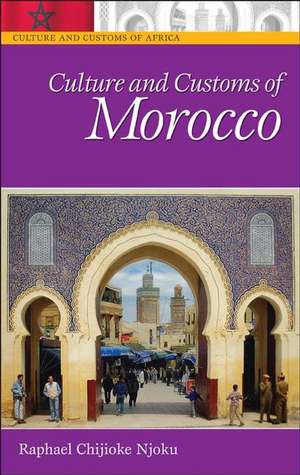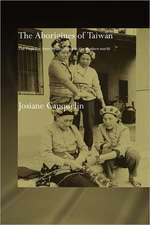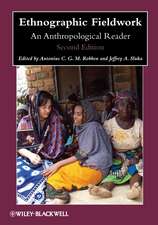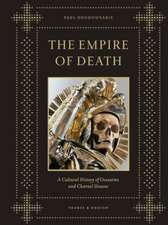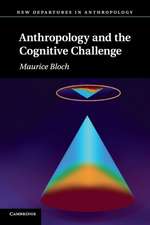Culture and Customs of Morocco: Culture and Customs of Africa
Autor Raphael Chijioke Njokuen Limba Engleză Hardback – 29 dec 2005 – vârsta până la 17 ani
Din seria Culture and Customs of Africa
- 42%
 Preț: 270.46 lei
Preț: 270.46 lei - 42%
 Preț: 237.51 lei
Preț: 237.51 lei - 42%
 Preț: 235.43 lei
Preț: 235.43 lei - 42%
 Preț: 235.52 lei
Preț: 235.52 lei - 43%
 Preț: 268.37 lei
Preț: 268.37 lei - 42%
 Preț: 251.63 lei
Preț: 251.63 lei - 42%
 Preț: 269.79 lei
Preț: 269.79 lei - 42%
 Preț: 228.75 lei
Preț: 228.75 lei - 42%
 Preț: 236.55 lei
Preț: 236.55 lei - 42%
 Preț: 235.71 lei
Preț: 235.71 lei - 45%
 Preț: 90.94 lei
Preț: 90.94 lei - 42%
 Preț: 251.44 lei
Preț: 251.44 lei - 52%
 Preț: 250.10 lei
Preț: 250.10 lei - 42%
 Preț: 300.68 lei
Preț: 300.68 lei - 42%
 Preț: 234.56 lei
Preț: 234.56 lei - 50%
 Preț: 227.06 lei
Preț: 227.06 lei - 42%
 Preț: 225.45 lei
Preț: 225.45 lei - 42%
 Preț: 225.14 lei
Preț: 225.14 lei - 50%
 Preț: 227.43 lei
Preț: 227.43 lei - 44%
 Preț: 168.07 lei
Preț: 168.07 lei - 42%
 Preț: 226.96 lei
Preț: 226.96 lei - 42%
 Preț: 236.84 lei
Preț: 236.84 lei - 42%
 Preț: 236.38 lei
Preț: 236.38 lei - 42%
 Preț: 238.27 lei
Preț: 238.27 lei - 50%
 Preț: 226.96 lei
Preț: 226.96 lei
Preț: 244.08 lei
Preț vechi: 424.86 lei
-43% Nou
Puncte Express: 366
Preț estimativ în valută:
46.71€ • 48.64$ • 39.48£
46.71€ • 48.64$ • 39.48£
Carte tipărită la comandă
Livrare economică 10-24 martie
Preluare comenzi: 021 569.72.76
Specificații
ISBN-13: 9780313332890
ISBN-10: 0313332894
Pagini: 176
Dimensiuni: 156 x 235 x 18 mm
Greutate: 0.4 kg
Editura: Bloomsbury Publishing
Colecția Greenwood
Seria Culture and Customs of Africa
Locul publicării:New York, United States
ISBN-10: 0313332894
Pagini: 176
Dimensiuni: 156 x 235 x 18 mm
Greutate: 0.4 kg
Editura: Bloomsbury Publishing
Colecția Greenwood
Seria Culture and Customs of Africa
Locul publicării:New York, United States
Notă biografică
RAPHAEL CHIJIOKE NJOKU is Assistant Professor of African History at the University of Louisville, Kentucky, and an adjunct at Indiana University Southeast.
Cuprins
Series ForewordPrefaceAcknowledgmentsChronologyIntroductionReligion and World ViewLiterature and MediaArt and Architecture/HousingCuisine and Traditional DressGender Roles, Marriage, and FamilySocial Customs and LifestyleMusic and DanceGlossaryBibliographic EssayIndex
Recenzii
Njoku recounts the modern culture, society, and lifestyle of Morocco, which combines Berber, African, European, Arab, and Jewish customs. The introduction covers the history of the country, its land, people, and languages. The majority of the discussion centers on religions, including Islam, Judaism, and Christianity, politics, literature in indigenous and Western languages, media, traditional and contemporary art and architecture, cuisine and dishes, types of dress, ceremonies, gender roles, marriage, family, social customs, festivals, music, and dance.
[I]ncorporat[es] a wealth of information in a relatively short book in very accessible language. with this book in hand, those students new to Moroccan affairs or, indeed, the study of North Africa and the Middle East, will need to look no further for a broad introduction to the subject of Moroccan culture and customs - any issue a student could possibly wish to read about is touched upon by Njoku.
Culture and Customs of Morocco allows for a thorough understanding of Moroccan culture; from its history and religious influences through its social, political and cultural strengths. Chapters also provide critical overviews of changes and improvements in progress, as well as surveying the country's people, land, and economy. A powerful coverage which will appeal into high school and public library collections.
[I]ncorporat[es] a wealth of information in a relatively short book in very accessible language. with this book in hand, those students new to Moroccan affairs or, indeed, the study of North Africa and the Middle East, will need to look no further for a broad introduction to the subject of Moroccan culture and customs - any issue a student could possibly wish to read about is touched upon by Njoku.
Culture and Customs of Morocco allows for a thorough understanding of Moroccan culture; from its history and religious influences through its social, political and cultural strengths. Chapters also provide critical overviews of changes and improvements in progress, as well as surveying the country's people, land, and economy. A powerful coverage which will appeal into high school and public library collections.
